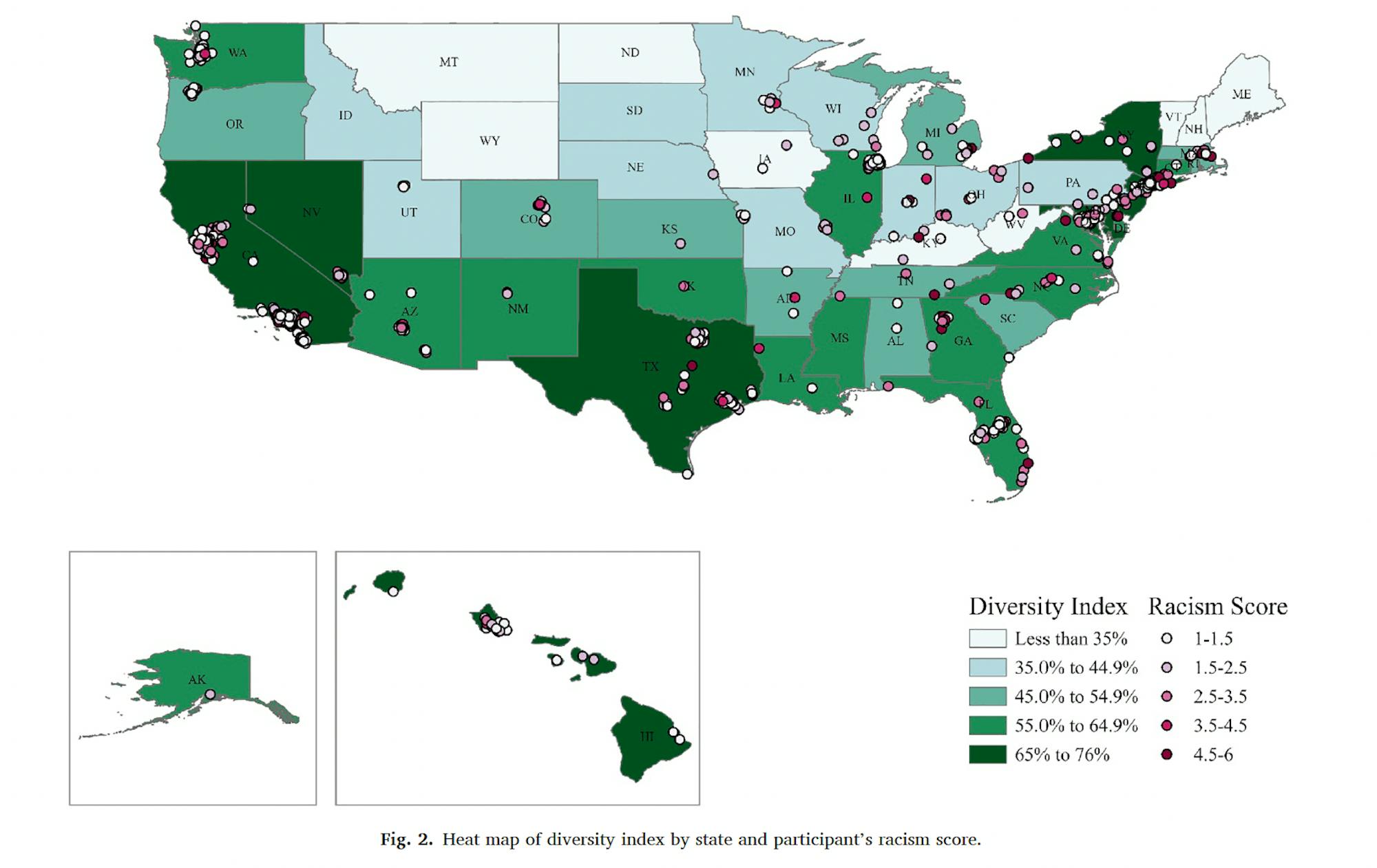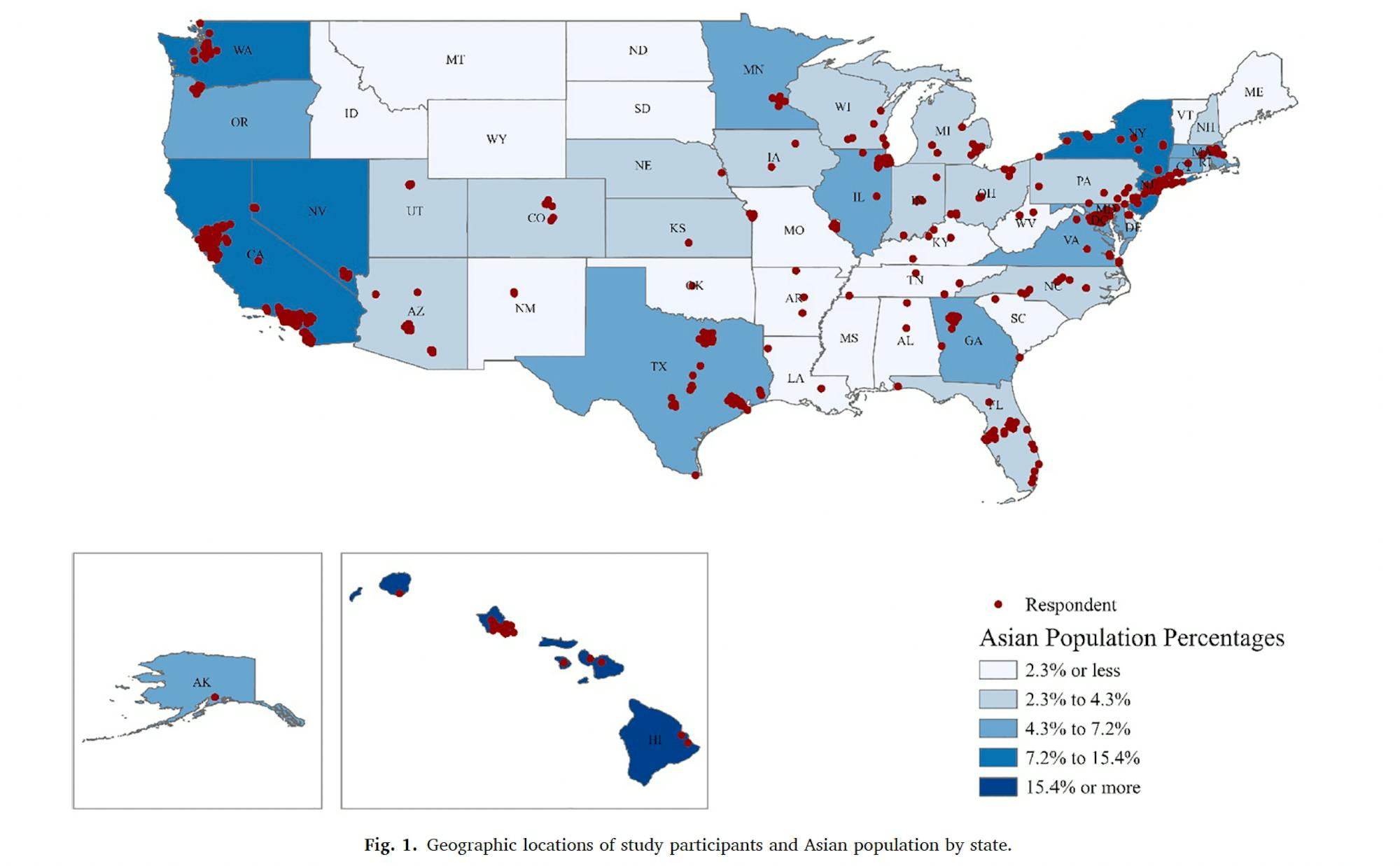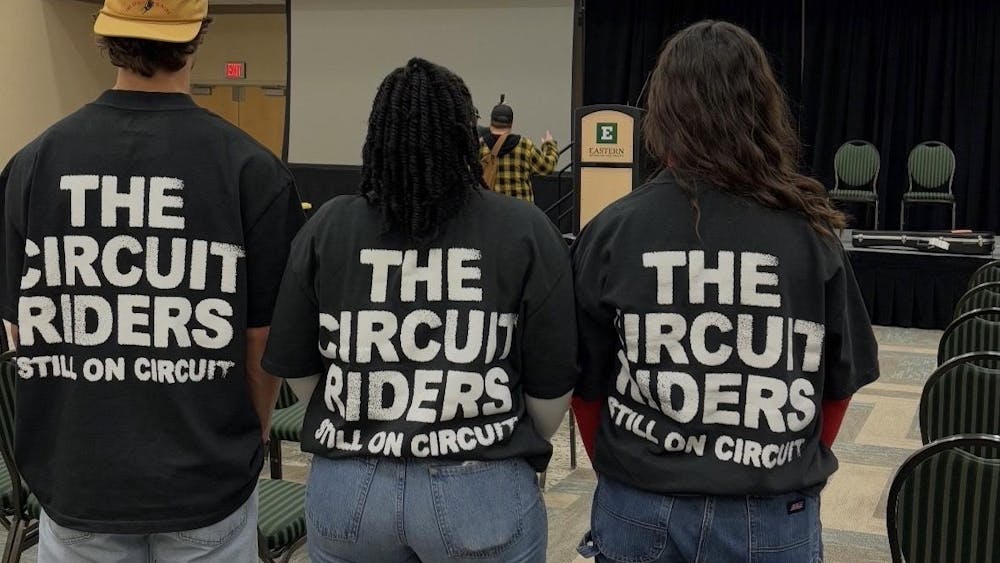Eastern Michigan University professor Tsu-Yin Wu received a grant from the National Institutes of Health (NIH) to continue her research on the topic of firearm violence prevention in Asian American communities.
The focus in Asian American communities for Wu is inspired by her interest in working with underrepresented groups, plus the increased experiences of racism and hostility toward Asian Americans during the COVID-19 pandemic.

A heat map in Tsu-Yin Wu's study that depicts the diversity index by state and participant's racism score.
"For the longest time, I always cared about underserved populations, in this case Asian Americans ... but very recently [during] this COVID-19 pandemic, the racism plus the firearm increase made my effort directed toward this topic area," Wu said. "Asian Americans do want to feel safe and [buying firearms] is one of the forms they may take on for action."
The five-year grant will enable Wu to continue conducting clinical surveys as she did during the early COVID-19 pandemic. Wu authored two papers published in the National Library of Medicine which cover her original research: “Examining Racism and Firearm-Related Risks Among Asian Americans During the COVID-19 Pandemic” and “Understanding the Intersectionality of COVID-19 Racism, Mental Distress, Alcohol Use, and Firearm Purchase Behavior Among Asian Americans.”
Wu’s research program will be a two-part clinical study taking place over five years. Phase one will actively collect data from participants, and phase two will focus on intervention implementation.
Phase one will collect data in a new way, attempting to understand the cause of firearm violence for the participants.
“In phase one, we are going to do ‘photovoice,’” Wu said. “You’re probably familiar with surveys, interviews, but this is like we are asking people to go out, take photos, and show us the root causes of the firearm violence.”
Phase one will also use the support of technology at EMU to create quantifiable, viewable data of the study.
“The other part of phase one we are gathering information is using the GIS, the Geographic Information System, [with the help of EMU’s] Dr. Xining Yang,” Wu said. “The very significant part of his effort is using the geology kind of data, environment data, to see where the cluster of firearm incidents or violence is happening.”
The two methods in phase one will work to inform the interventions necessary for the communities studied.
“So we are combining the ‘photovoice,’ people using the subjective perception to illustrate through photo, and we are also going to ask them to come to sessions and share with us what the photos mean, and the other part is using the environmental data mapping to kind of put the two together,” Wu said. “We are going to integrate those data and put it toward developing interventions.”

A map from Tsu-Yin Wu's study depicting geographic locations of study participants and Asian population by state.
The study will be based in Michigan, and Wu hopes that the results can one day be modeled for a wider region.
“We could do a really good job, and then once we find this model is working or that the intervention we did is working, then it could be adaptable,” Wu said.
Wu will also be working with community partners, including the Asian Communities toward Innovative Visionary Environment (ACTIVE) Coalition to help address public health concerns in Asian American communities. The ACTIVE Coalition consists of community leaders, local health professionals, staff members, and legislators.
Community partner organization members will serve on the study’s advisory board, providing input throughout the five-year project.
Legislation is a key aspect for the work Wu is doing moving forward, and she hopes to see more support from legislators in the future.
“We really need them to come on board because what we’re doing has policy implications,” Wu said. “Support comes from working together toward health equity.”
This is not the only grant that Wu is currently working on. Another program is one that provides translation support to families and individuals seeking services in healthcare.
“I think it’s really rewarding to see that our work makes a difference in peoples’ lives,” Wu said.











